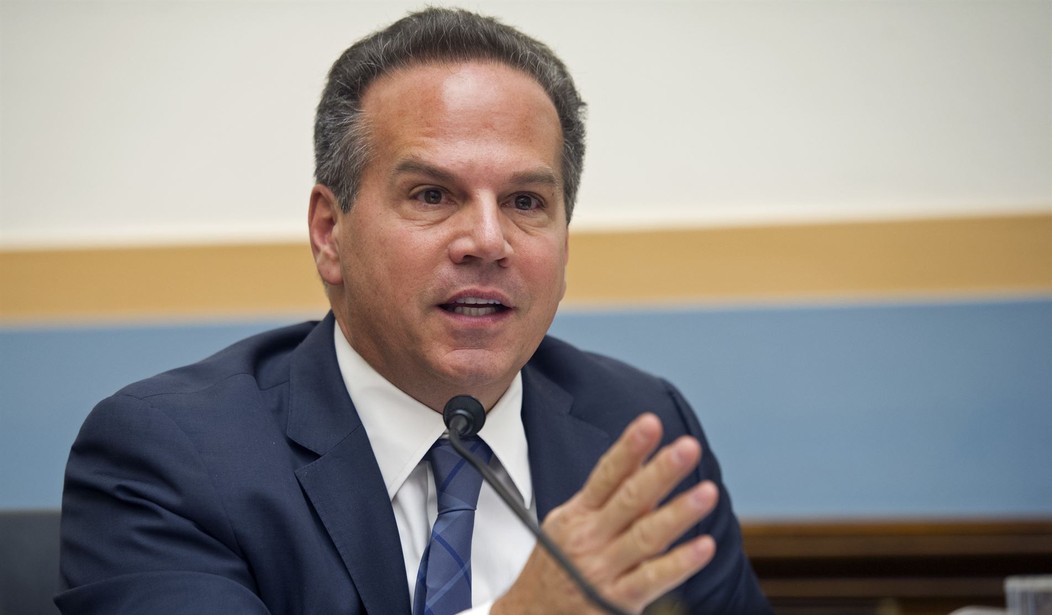Today, we expect every store we walk into to have both their own branded products. Costco has Kirkland. Safeway has O Organics. Even CVS has its own line of Band-Aids. And most consumers like having these generic brands as options because they’re cheaper, force prices down of name brands, and can even push companies to improve their quality.
Unfortunately, though, these generic brands are now on the antitrust chopping block. Congressman David Cicilline (D-RI) now wants to make it illegal for marketplaces to sell their own products.
To Cicilline, this age-old process of selling both name brand items and a lower-cost in-house alternative is a conflict of interest so great that it should be illegal. Of course the Chairman ignores the fact that if Band-Aids were so opposed to competing with CVS’s brand, Band-Aids could just stop selling to CVS. But rather than letting the businesses or customers decide this, Rep Cicilline wants to make the decision for them.
Today, antitrust law centers on one key question: Does the business activity benefit or harm consumers? Current antitrust law protects consumers, not businesses. And when businesses compete, prices fall, innovation happens, and consumers reap the benefits.
Take Costco’s Kirkland brand. By producing its own coffee beans for a fraction of the cost, Costco slashes its prices and forces its competitors to do the same. So, the average shopper in the aisle can get lower-cost coffee regardless of what brand they buy. But Rep. Cicilline’s actions and statement show that he wants to change antitrust law’s primary mission to protecting businesses, and make harm to consumers is a secondary consideration if not irrelevant altogether.
Under his anti-Kirkland approach, Rep. Cicilline says, “you can be one or the other. You can't set all the rules, control the marketplace, and also sell on it.” What he forgets is that vertical integration benefits consumers and businesses alike. If America followed Cicilline’s way, this new law would drive up the prices of everyday goods. In fact, it would be illegal for CVS to sell generic over-the-counter medications, leaving low-income Americans with fewer options and higher prices.
Recommended
Why do Costco customers buy Kirkland brand products? Because they are lower priced and of similar quality. The introduction of much needed competition that leads name-brand products to either increase their quality or lower their prices.
But to Rep. Cicilline, such competition should be illegal. So what does his proposal mean for brands we love, like Costco’s massively popular Kirkland product line? At its core, American companies like Costco would need to eliminate or selloff their own brands. So rather than choosing to buy Kirkland coffee, customers could only select from legacy businesses. Rather than being able to purchase Safeway’s O Organics, customers could only choose legacy packaged foods. In essence, Cicilline’s proposal means that less competition in stores and by outlawing in-house competitors, Cicilline can protect legacy name-brand companies like Energizer -- allowing them to continue charging Americans premium prices for batteries.
This move is less about American companies overall and more about one in particular — Amazon. In fact, Rep. Cicilline wants to attack the Amazon marketplace, even if it’s at the expense of both the hundreds of stores that sell their own brands at lower prices and the millions of consumers who benefit from cheaper, better products.
But Amazon is just the poster child for bad behavior as Rep. Cicilline attacks businesses and the consumers they serve. Antitrust activists like Rep. Cicilline say Amazon’s sale of its own batteries are “unfair” as it hurts Energizer’s profits (note that Energizer and Duracell still control close to 80% of the U.S. alkaline-battery market and their prices for batteries are rising). So is this latest action about protecting consumers or protecting big-battery companies?
At the end of the day, Representative Cicilline and his House Judiciary report have lost sight of the main goal of antitrust law— protecting the American consumer. Instead, this antitrust report misguidedly protects billionaire competitors over protecting the average American family. As it turns out, Democrats support Big Business after all--just so long as those businesses stay in their lane and charge high prices.

























Join the conversation as a VIP Member